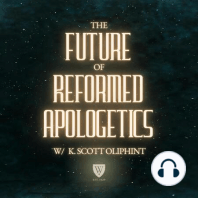23 min listen
"What is Sin?" (Chapter 33)
ratings:
Length:
25 minutes
Released:
Nov 8, 2023
Format:
Podcast episode
Description
In the previous episode, we talked about how we can know and have confidence that God exists. But the difference between knowing that God exists, and enjoying a relationship with God is a vast distance. Just believing in God doesn’t explain why he seems so far away. The answer to that dilemma isn’t a popular one these days. When we talk about sin a lot of modern preconceptions come to mind. Ideas about guilt and shame, judgment and brokenness. But none of these terms really captures what the Bible says about sin, the power that separates us from God. It’s that biblical definition of sin that J. Gresham Machen sets out to explain in this broadcast, and this isn’t just an exercise in academic theology. Although it can be uncomfortable to dig deeper into the darkness of our hearts, there’s hope. As we learn more about what sin is, we can begin to understand the real meaning of the sacrifice that Jesus made for us on the cross. To find out more about the book visit Wtsbooks.com and listen in to the episodes for a special discount on “Things Unseen” by J. Gresham Machen. Music Licensing Codes: 21E1AHRFGTH0PMIJ
Released:
Nov 8, 2023
Format:
Podcast episode
Titles in the series (99)
Paul Washer on Conviction: Listen to Paul Washer explore the role of conviction in ministry. Visit to join our online community and access exclusive book deals and other perks. Go to to learn about the new online degrees at Westminster Theological Seminary. by Westminster Seminary Press
